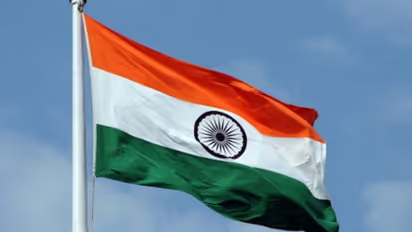UK welcomes efforts by India, China to de-escalate tension in eastern Ladakh

Synopsis
20 Indian soldiers were killed in a violent clash in Galwan Valley on June 15, triggering massive escalation of tensions between India and China.
New Delhi: The UK on July 23 welcomed efforts by India and China to de-escalate tension along the Line of Actual Control (LAC) in eastern Ladakh.
British High Commissioner Sir Philip Barton also expressed concern over Chinese action in Hong Kong as well as cases of human rights abuses against Uyghur Muslims in Xinjiang.
The UK, he said, is aware of the challenges presented by "some Chinese actions" and has been working with its close allies like the US to deal with them.
"I would like to say that the progress we have seen in managing the tensions and the commitment the two special representatives made on boundary question on July 5 to disengage and de-escalate is welcome," the newly-appointed envoy said during an online media briefing.
He said the Chinese actions in Hong Kong as well as along the LAC are "concerning".
The British envoy also talked about the "tragic loss of lives" of Indian soldiers along the LAC and hoped that both sides would be able to achieve de-escalation of tensions through talks.
20 Indian soldiers were killed in a violent clash in Galwan Valley on June 15, triggering massive escalation of tensions between the two sides.
However, both sides agreed to de-escalate tension by withdrawing troops from friction points following a series of diplomatic and military talks.
The disengagement process between Indian and Chinese militaries began on July 6 after a telephonic conversation between National Security Advisor Ajit Doval and Chinese Foreign Minister Wang Yi the previous day.
Doval and Wang are Special Representatives for the boundary talks.
"We do not have a border with China, but we do have particular responsibility for Hong Kong. The new national security law which China imposed is a very clear and serious violation of the UK-China joint declaration," Sir Barton said.
"We have also got great concerns around human rights abuses, in particular against the Uyghur Muslims in Xinjiang," he said.
Also watch: We know India is battling enemies like the dreaded Covid-19 & a conniving China. But there is a bigger enemy, and that one lies within.
Find out more in #TheNewsableDecipher
Check the Breaking News Today and Latest News from across India and around the world. Stay updated with the latest World News and global developments from politics to economy and current affairs. Get in-depth coverage of China News, Europe News, Pakistan News, and South Asia News, along with top headlines from the UK and US. Follow expert analysis, international trends, and breaking updates from around the globe. Download the Asianet News Official App from the Android Play Store and iPhone App Store for accurate and timely news updates anytime, anywhere.